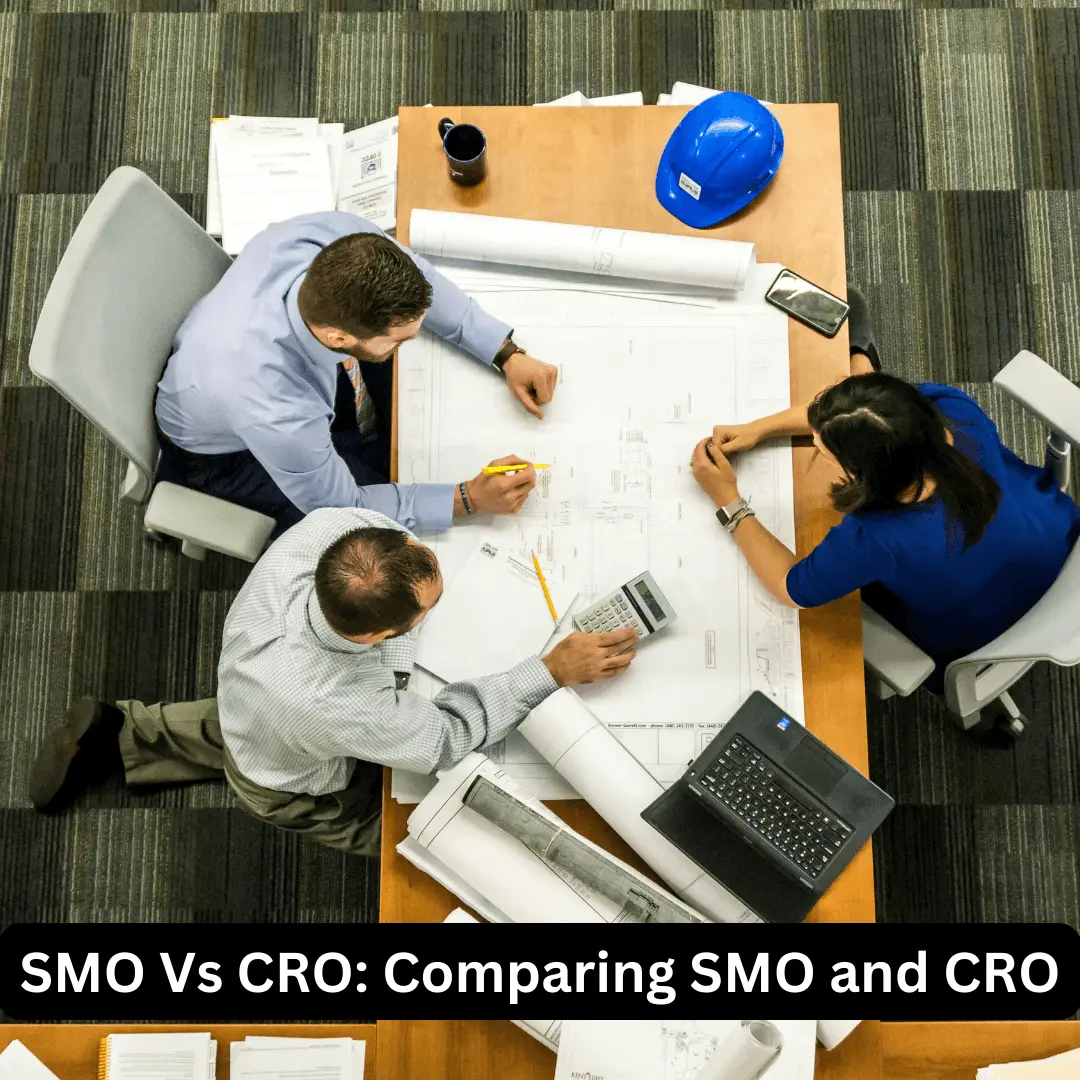Site Management Organizations (SMOs) and Contract Research Organizations (CROs)

Site Management Organizations (SMOs) and Contract Research Organizations (CROs) are pivotal players in clinical research. Despite their importance, they serve different roles, each contributing their own expertise and resources. Sponsors who wish to improve their clinical trials must understand these differences between SMO vs CRO.
This article compares the core functions, benefits, and challenges of SMOs and CROs, allowing you to go through SMO vs CRO comparison and make an informed decision.
SMO vs CRO Comparison
Let’s uncover the comparison of the services, responsibilities, and benefits of Site management organization and Contract research organizations:
Site Management Organizations (SMOs):
SMOs specialize in managing clinical trial sites. Their primary focus is on-site operations, ensuring that trials run smoothly at each location.
Key responsibilities include:
- Site Selection and Setup: Identifying suitable sites, negotiating contracts, and setting up the necessary infrastructure.
- Patient Recruitment and Retention: Implementing strategies to attract and retain participants, crucial for trial success.
- Regulatory Compliance: Ensuring all activities comply with local and international regulations, maintaining ethical standards.
- Data Collection and Management: Overseeing accurate data collection, ensuring high-quality data for analysis.
Contract Research Organizations (CROs):
CROs offer a broader range of services encompassing the entire clinical trial process. They provide comprehensive support from trial design to data analysis and reporting.
Key services include:
- Trial Design and Planning: Developing study protocols, statistical analysis plans, and regulatory strategies.
- Project Management: Coordinating all aspects of the trial, including timelines, budgets, and communication between stakeholders.
- Medical Monitoring: Ensuring trials adhere to protocols and regulatory requirements through regular site visits and audits.
- Data Management and Biostatistics: Handling data entry, analysis, and reporting to ensure robust and reliable results.
Key Differences between SMOs and CROs
| Key Differences | SMO | CRO |
| Focus | Focus on site-level operations, ensuring efficient and compliant management of trial sites. | Provide end-to-end services, managing the entire clinical trial process from inception to completion. |
| Expertise | Expertise in site management, patient recruitment, and regulatory compliance at the site level. | Broad expertise across all aspects of clinical research, including trial design, project management, and data analysis. |
| Engagement with Sponsors | Engage primarily with site staff and investigators, providing support for site-specific activities. | Work closely with sponsors, offering strategic guidance and comprehensive trial management services. |
Advantages of SMOs
Below-mentioned key points are few of the benefits of a site management organization:
- Deep understanding of local regulations and site-specific challenges.
- Focus on patient recruitment and retention, enhancing trial participation rates.
- Often more cost-effective for sponsors needing specialized site management services.
Advantages of CROs
- One-stop solution for all clinical trial needs, from planning to reporting.
- Ability to manage large-scale, multi-site trials with extensive resources and expertise.
- In-depth knowledge of global regulatory requirements, ensuring compliance across all trial stages.
Choosing Between an SMO and a CRO
Confused when to choose an SMO or a CRO? Here, we have sorted some bullet points for your understanding that in what circumstances you should choose them:
When to Choose an SMO:
- When you need focused site management and patient recruitment services.
- If your trial requires deep local expertise and regulatory knowledge.
- When cost control is a significant consideration.
When to Choose a CRO:
- For large, complex trials needing comprehensive management.
- When you require strategic guidance and end-to-end trial support.
- If you need robust data management and biostatistical analysis.
Why is a SMO not a CRO?
A Site Management Organization (SMO) focuses on managing clinical trial sites, handling patient recruitment, and ensuring regulatory compliance at the site level.
In contrast, a Contract Research Organization (CRO) provides comprehensive, end-to-end services for clinical trials, including trial design, project management, and data analysis. While SMOs specialize in site operations, CROs oversee the entire trial process from start to finish.
Final Remarks
So, when we end this debate, we would rather say stay informed, choose wisely, and pave the way for successful clinical research endeavors by choosing the right partner like Kerlo Research.

